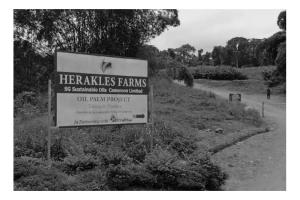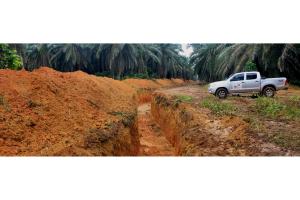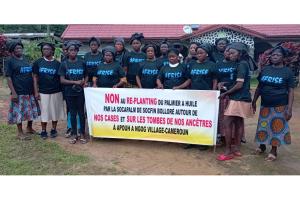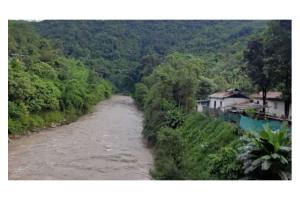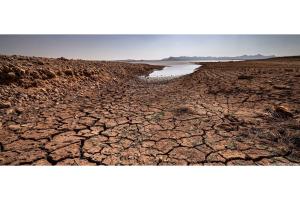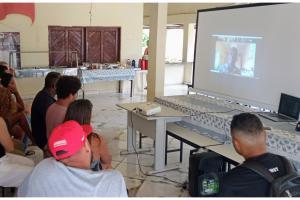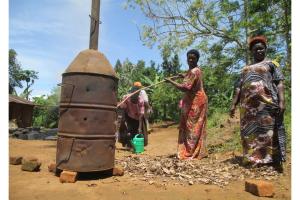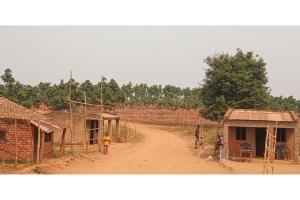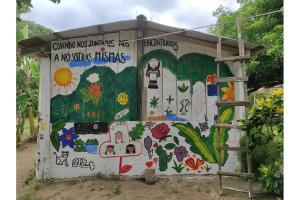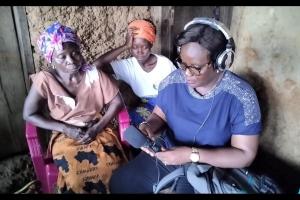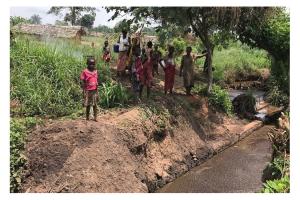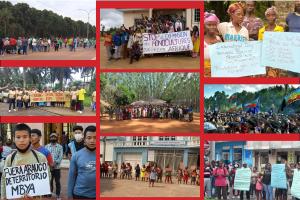Struggles Against Tree Monocultures
Corporate profit drives land grabs to install industrial tree monocultures. Where industrial plantations take root, communities' territories and lives are violently invaded, their forests destroyed and their water polluted. When communities resist, companies tend to respond with aggression. Despite this extreme violence, communities around the world are resisting, organizing and joining forces to defend their territories. Every September 21 the International Day of Struggle against Monoculture Tree Plantations is celebrated.
Bulletin articles
22 August 2024
Bulletin articles
26 February 2024
In the Acará Valley, Pará state, the Tembé and Turiwara indigenous peoples, and quilombola and peasant communities are fighting to take back part of the living spaces they traditionally occupied. It is not just a struggle for territory, but one to reverse a history of oppression and injustice. Today, they are denouncing structural violence and state omission.
Bulletin articles
19 December 2023
The Afrise women's association launched an international petition to stop the replanting of oil palm monocultures around their homes and over the grave sites of their ancestors. They are denouncing decades of sexual abuse, land dispossession and misery. They are demanding that their territory be returned to them, so that they can lead a life of dignity.
Bulletin articles
25 October 2023
Land related struggles in India’s Northeast states might worsen with the push to expand oil palm plantations on small-farmers and Indigenous land, threatening their food sovereignty and the ancestral practice of Jhum (shifting cultivation). On top of this, a new Forest Amendment Law will facilitate this expansion, jeopardizing further the region’s forests and Indigenous Peoples.
Bulletin articles
25 October 2023
More than seven percent of Uruguay's territory is covered with monoculture tree plantations. A handful of companies have been behind this massive expansion—which has occurred mostly over watersheds and prairies—,with devastating consequences. This year, almost half of the urban population had no access to drinking water—an imminent warning of the drastic change that is needed for Uruguay to maintain its water.
Bulletin articles
25 October 2023
Exchanges between activists put the voices of those who fight to defend their territories at the center of the conversation. In September, members of communities from Brazil and Mozambique united their struggles and connected their histories once again, helping to strengthen solidarity in the fight against industrial tree plantations.
Bulletin articles
30 March 2023
In the month of International Women’s Day, this editorial reflects on a central issue for WRM: Why is feminism important in struggles for forests? Feminist struggles place life at the center and show that in order to defend lands and forests, we must transform power relationships.
Bulletin articles
30 March 2023
At the foot of Mount Mabu, Mozambique, the expansion of rubber tree monoculture plantations has restricted Manhaua communities’ access to their own territory. This process has occurred by means of systematic abuses, thus depicting the contrast between the different ways the population and foreign capital relate to the environment where they find themselves.
Bulletin articles
16 January 2023
Oil palm plantations are a central cause of deforestation in southeast Mexico. A network of women in Chiapas have organized to denounce the tactics of coercion and deception employed by the State and companies to get peasants to accept this monoculture on their lands. Their struggle is for the land, for their knowledge, and for their voices to be heard.
Bulletin articles
16 January 2023
Oil palm plantation company Socfin has meant violence and oppression for affected communities in several African countries. Sierra Leone is no exception. In collaboration with Aminata Finda Massaquoi, a journalist and the national coordinator of the women’s advocacy network WORNAPI, WRM is releasing a podcast to highlight the voices of women living with the impacts of industrial plantations.
Bulletin articles
11 October 2022
This bulletin highlights materials and analysis related to communities’ struggles against industrial tree plantations. It also pays homage to communities in DRC struggling to get their lands back from an oil palm company since colonial times. Their courageous struggle showcases the multiple layers of oppression and violations that result from the plantation model.
Bulletin articles
11 October 2022
Industrial tree plantations have always been about corporate control over community fertile lands. The monoculture model inherently endangers communities’ survival, food sovereignty and autonomy, deepens the violence of patriarchy and racism while enforcing the same destructive and oppressive way of organizing land (and thus, people) as the one enforced during the colonial era.
